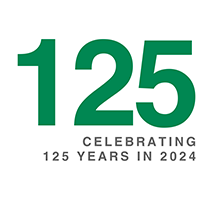![First Test of New Public Interest Defence in defamation: Russell v Australian Broadcasting Corporation (No 3) [2023] FCA 1223](https://www.codea.com.au/wp-content/uploads/2023/11/Images-50-1.png)
First Test of New Public Interest Defence in defamation: Russell v Australian Broadcasting Corporation (No 3) [2023] FCA 1223
Published on November 20, 2023 by Grace Brophy
Former special forces soldier, Heston Russell (Mr Russell), was recently successful in his defamation claim against the ABC in the Federal Court of Australia. This was the first full trial in which the relatively new public interest defence has been examined by the Courts.
The ABC has been ordered to pay more than $400,000 in damages to Mr Russell after the Court ruled that the broadcaster could not rely on a public interest defence, after defamatory reports alleged that he was involved in the killing of an Afghan prisoner. This article provides a background on the Heston Russell v ABC case and examines the Public Interest Defence.
Background
In October 2020, the ABC published an article that alleged the November Platoon, led by Mr Russell, had executed a prisoner because they would not fit onto a helicopter.
The protected source (referred to by pseudonym, Josh) allegedly heard a “pop” over the radio and then voices confirming there would be “six prisoners, not seven”.
The October 2020 article was republished by the ABC in November 2021, along with a claim the Australian Defence Department had “confirmed” that there was an active, criminal investigation into the November Platoon.
In February 2023, the Federal Court of Australia found that Mr Russell had been defamed by the ABC because it published allegations linking him to war crimes, claiming that he had left “fire and bodies” in his wake.
Public Interest Defence
The Defence of publication of a matter concerning an issue of public interest is contained in section 29A of the Defamation Act 2005 (NSW).
The section provides that it is a Defence to the publication of defamatory material if the defendant proves that:
- the matter concerns an issue of public interest;
- the publisher reasonably believed that the publication of the matter was in the public interest; and
- the publisher’s belief was reasonable in all the circumstances of the case.
In light of the above, the Court’s ruling took into consideration whether the ABC and its journalists genuinely believed that publishing the matter was in the best interests of the public.
The success of the ABC’s public interest defence (which ultimately failed) turned on whether the ABC could prove the element of reasonableness. In order to establish reasonableness, the Court took the following factors into consideration:
- the seriousness of any defamatory imputation;
- the source of the published information;
- the steps taken to verify the information; and
- any attempts to obtain and publish a response from the affected party.
Failure of the Public Interest Defence
Justice Lee rejected the public interest Defence due to the way in which the article was drafted, as well as the ABC’s urgency to publish.
Notwithstanding the above, Justice Lee also rejected Mr Russell’s submission that the ABC had no subjective belief that the reports were in the public interest. However, his Honour said the Defence was not established because of the broadcaster’s failure to demonstrate that its belief was reasonable in the circumstances.
His Honour went on to say that the article published in November 2021 “overstated the cogency of the evidence in the ABC’s possession and was published following several missteps, including the failure to procure fairly and consider a response from Mr Russell” (section 502).
In one of the key critical observations of the ABC and its journalists, the Court found the drafting of the November 2021 article did not differentiate between the matters that were suspicion and the matters that were proven. His Honour said the fact that the ABC and its journalists had other reasons to believe the November platoon was under investigation was still not enough to justify the “pressing need to publish the story” (section 380). Rather, the urgency was to a large degree, commercial and retributive.
Potential Appeal
On 24 October 2023, the ABC’s Managing Director, David Anderson, was questioned by Liberal Senator, Sarah Henderson, on whether the ABC was considering whether to appeal the Federal Court’s decision.
Mr Anderson did not confirm whether the ABC will appeal the judgment, however he did note that they have a period of 28 days from the date of the final judgment to file and serve a Notice of Appeal.
What’s next?
This case marks the first test of the public interest Defence, which was introduced as part of Australia’s defamation law reforms in July 2021.
Subject to any appeal, this case may become a precedent for future defamation cases in which the public interest defence is raised This case has at the very least, provided valuable insight into the application of s 29A, and the importance of balancing public interest against the publishing of defamatory material.
To see the full judgment, please click here. Please contact Daniel O’Brien or Grace Brophy for a free initial consultation to discuss your legal options for defamation matters and how we may be able to assist you.

